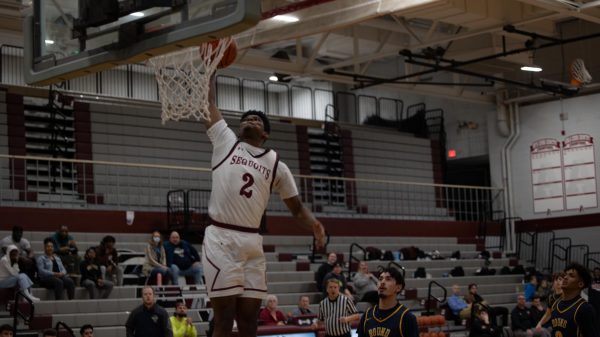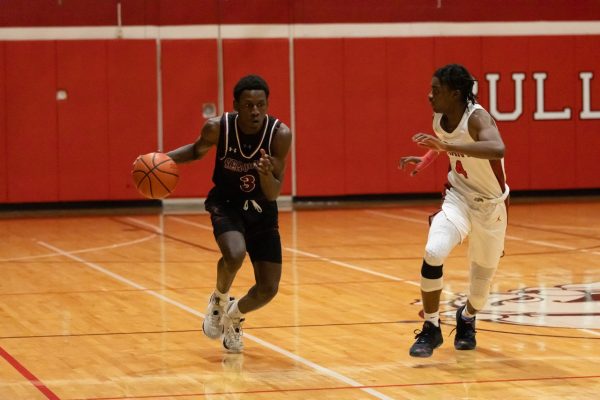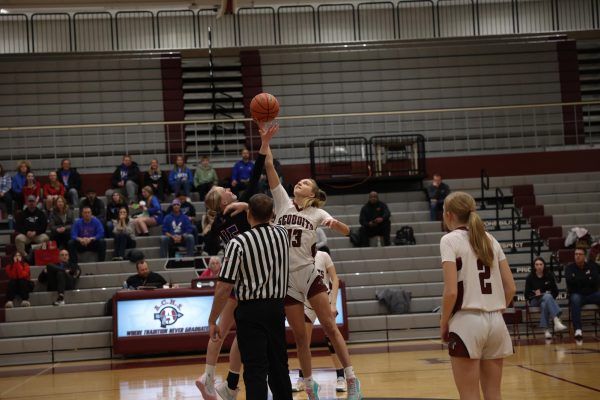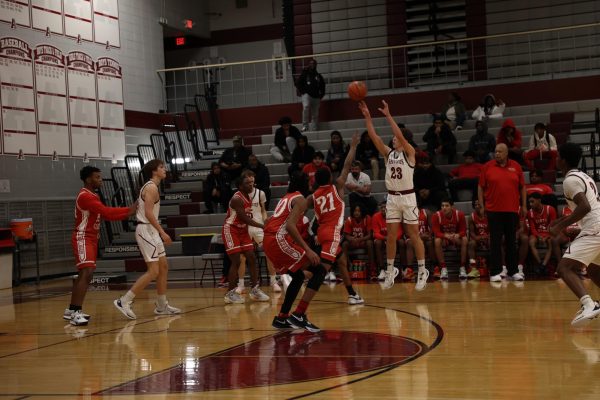Playing Dirty
It’s the final minutes of the game. Your team is losing. Frustration is radiating in your head and the way your team is playing isn’t helping. What do you do? Do you talk trash to your opponents? Do you injure another player to get your team ahead? What risk will you be willing to take?
Playing dirty is perceived differently by every athlete. Whether it’s kicking someone’s ankles in soccer, throwing an elbow in basketball or talking through a facemask in football, playing dirty is a way to get out frustration at another player, whether or not it benefits or hurts the team.
Senior Alexis Duehr thinks that there is a difference between playing “dirty” and playing aggressive.
“I define playing dirty as purposely getting into someone’s face and saying things to put them down or their team,” Duehr said. “Also, playing dirty can be when a player does things secretly such as whispering phrases that are inappropriate or grabbing when the official is not looking.”
Duehr is known as a dynamic player on the field and on the court.
“In field hockey, I don’t really see myself as playing dirty because I am aggressive,” Duehr said. “When someone is in my way, I try to get around them but nine out of ten times I run into them. People think it is on purpose, but I honestly can’t stop myself that quickly so I end up trucking people over. I guess I can see that as being dirty.”
The term “playing dirty” is often perceived as a negative, as if playing like this means an athlete is a mean player and only wants to hurt people. Within many sports, the dirtiest player is seen as the one who everyone is out to get, or the one who needs to be taken down. The dirtier player can also be seen as the toughest player, the one who nobody wants to mess with in or out of the game.
Senior Stephen Frandsen agrees that playing dirty isn’t actually playing dirty at all.
“It’s more of playing with attitude,” Frandsen said. “A lot of it is really just putting an exclamation mark on things, letting them know who is in charge of the situation.”
Frandsen sees the difference within sports first hand, as he is on both the football and wrestling team.
“In wrestling, leading with your head or cranking on something harder than really needed would be considered dirty. The intent is never to injure your opponent, but there is definitely times where making them uncomfortable sends a message that you aren’t messing around,” said Frandsen.
Other athletes see playing dirty as a chance to hurt the other team in order to get their team ahead. Getting in an opponent’s head can be beneficial, but it can also have a negative impact on your team’s performance.
“Getting in another player’s head will most likely make them perform worse than they usually do,” Duehr said. “Playing dirty can make you look like bad person in general; people think of you differently. It’s not enjoyable to play against dirty players.”
Freshman Krystian Nikolov was a key player on the boys varsity soccer team this year. During his season, he saw plenty of dirty plays and the impact of them on the game.
“Playing dirty gets the other team off their game,” Nikolov said, “but the downside is that you can be called on a foul, or worse and get carded. I’ve been in situations where playing dirty also causes a fight with the opposing team.”
Soccer, being a very intense contact sport, can get dangerous very fast.
“Pushing and kicking the other player’s legs or throwing an elbow here and there while the referee is not looking is how I personally play dirty,” Nikolov said. “Talking trash also can really get in their head and throw them off their game.”
Senior Peter Tognarelli doesn’t view himself as a dirty player, but does admit to not always following the rules during football games.
“Playing dirty is like cheating,” Tognarelli said. “Once the play is over, you’re not suppose to take shots at the other players. But it happens anyways, it comes with the intensity of the game.”
Referees are not exactly every athlete’s favorite person. To the athletes, they often times seem to make the right calls and are always out to ref against your team. Sometimes, it’s better to make sure the referee doesn’t see the intentions of the players.
“It’s best to hide your dirty-playing from the refs,” Nikolovs said. “If they don’t see, it’s like it didn’t even happen. But once the ref gets involved, you need to calm yourself down before really screwing yourself over. Nothing is worse for you than arguing with the referee.”
In any sport, playing more aggressive can either make or break you. There are different levels of intensity, and the more aggressive of play, the dirtier it will get. Playing dirty is a risk that many athletes take to benefit their team, although many choose to play it safe instead of taking that risk. How do you play?











